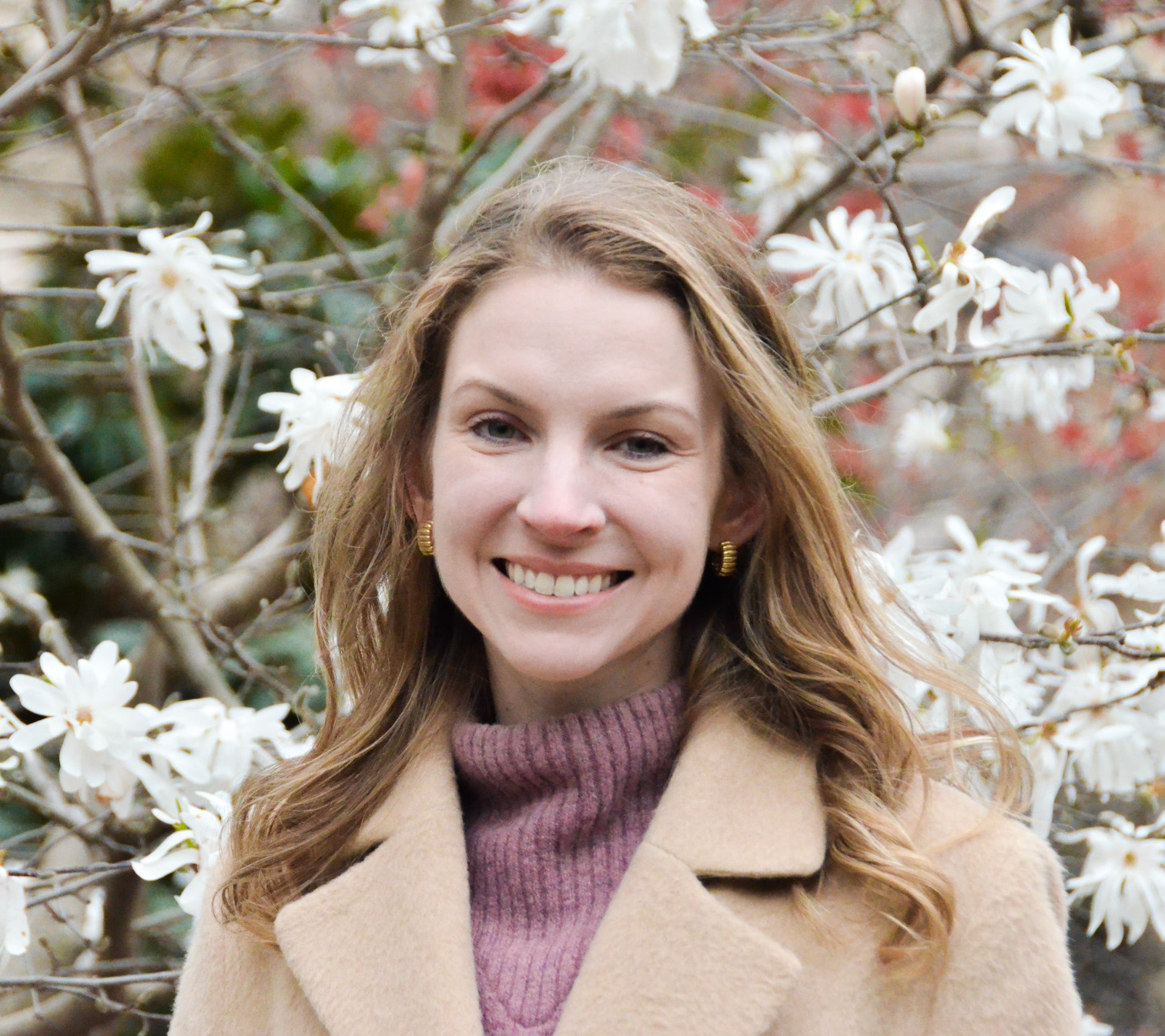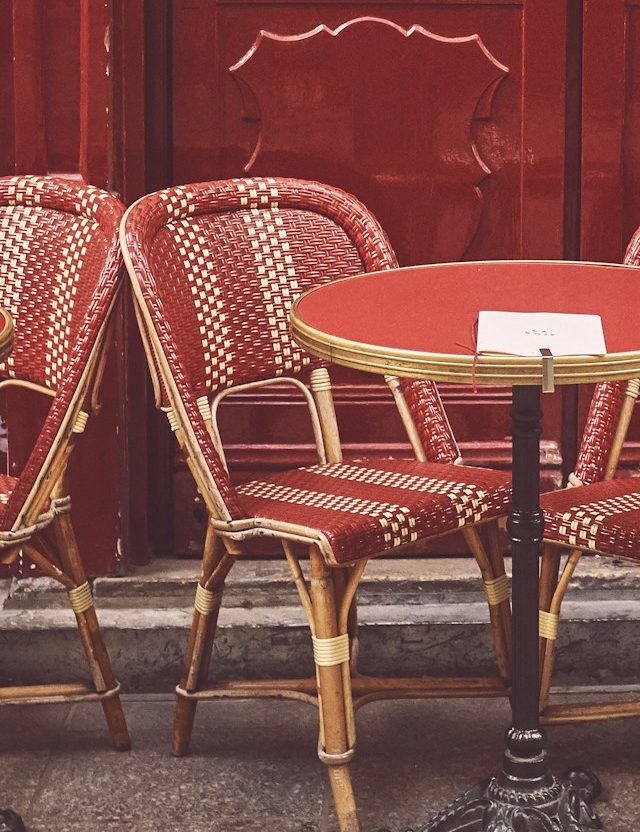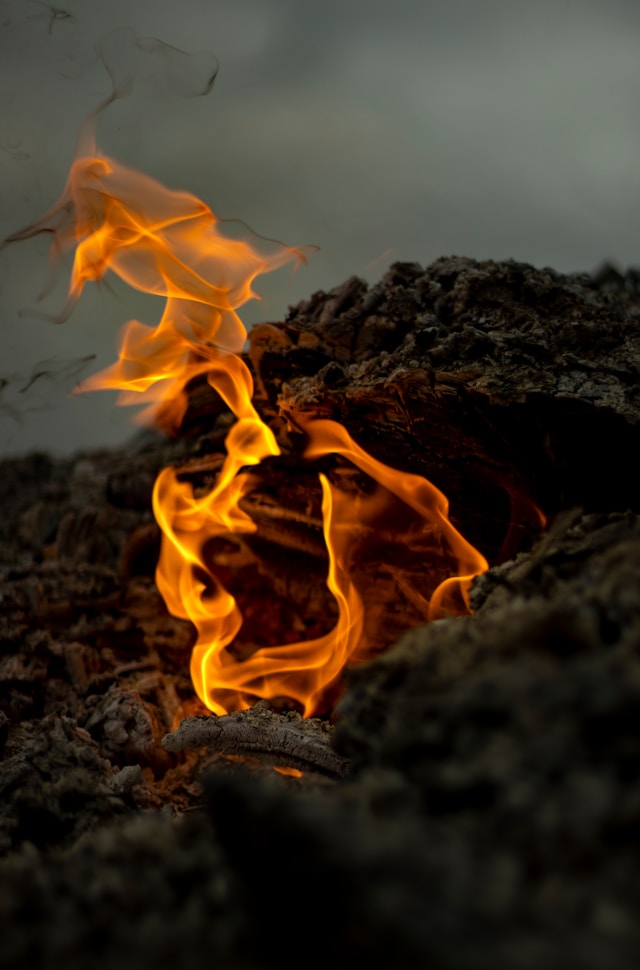The End of Champs-Élysées
Kate wakes up bleary eyed and startled as lights flick on, a harsh glow from overhead. For a moment, she forgets where she is, why he isn’t by her side. There’s a tray with breakfast on it in front of her. A packaged croissant, orange juice and Starbucks coffee. She rips a corner off the tender pastry that tastes like cardboard in her mouth. The flight attendant takes her tray away before she’s finished, and the pilot’s voice crackles through the intercom: “We have begun our descent into Charles de Gaulle.”
When the customs officer asks the purpose of her visit, Kate replies, “A holiday,” but the words taste bitter on her tongue. He stamps her passport, and she’s off to catch a train, then the metro. Through the dark green arches of the Metropolitan, she emerges into the beautiful chaos of Paris. People tucked into peacoats and wrapped in scarves dot the sidewalks, and she feels like she’s caught in a rip current as they swish past her with studied, deliberate purpose. What is she doing here? She wonders again why she’s come here alone as she breathes in cigarette smoke mixed with European nonchalance, the distinct mood of Paris circling her in a hazy cloud.
Kate checks into her hotel, a champagne-tinged building adorned with wreaths and greenery. She has already had her sister call and set the record straight about Kate’s stay. Make it very clear that it’s just me, Kate instructed her older sister. Luckily, it is an upscale hotel, one where the staff are trained to anticipate each guest’s specific needs, and they certainly know well enough to eliminate all references to Kate’s husband.
She wanders through Saint-Germain-des-Prés ending up in the Latin Quarter, where she passes couples canoodling at café tables. Their affectionate displays induce constriction in Kate’s chest. She picks a table and sits there for what feels like hours, ordering petite café after petite café, until the caffeine makes her jumpy. Next, a croque monsieur and a glass of white wine. She takes out the notebook she bought in the airport gift shop. She’d purchased it with this sole intention – to give her purpose while sitting and eating alone in Paris. She supposes if she were a different woman – a more independent, confident woman – she might be better equipped to spend time by herself. She could have written vignettes in the notebook, or sketched in it every storybook scene that surrounds her, but instead she stares at the blank pages, thinking of everything she has lost.
Soon, one set of lovers gets up to leave, walking past Kate like she’s a ghost. She asks for the check, walks towards the Seine, and meanders along the river. Parisians sit along the quays drinking wine as rays of sunlight weave through the clouds. Kate buys her own bottle of wine and finds a riverside spot near Pont des Arts to sit, and she’s surprised when half the bottle doesn’t plunge her into another trench of despair. But when she feels the sun warm her face and watches it glint off the ripples of the Seine, she thinks how could it? How can she be sad when she’s only thirty-four and she’s here and the vibrating nasality of French syllables rings in her ears? Even though her husband left her, it will be okay if she waits for enough time to pass. Isn’t that what they say? If she puts enough life experience between the night he told her he was in love with someone else and the present, then soon a new life will blossom in his place.
Kate throws the half-full bottle of wine away and crosses the Seine at Pont Royal. She makes eye contact with people, something she’s been studiously avoiding, and even smiles at a few passersby. She pauses halfway across the bridge when she sees two women snapping a selfie, and she offers to take their photo. Something like adrenaline hits her at this small interaction and she’s emboldened by the endorphins, the alcohol and sugar pumping through her veins, and wind whipping her cheeks.
On the other side of the bridge, Kate enters Jardin des Tuileries and finds a green, reclining chair near the basin in the middle. It’s not much of a garden in the winter, just gravel pathways flanked by spindly leafless trees. She sits beside a man who is sketching on his notepad. His pencil whooshes dully against the page, and peoples’ footsteps crunch against the gravel as she gazes past the treetops, watching the moody sky change colors. She stays there until the small crowd thins and the sun hovers close to the horizon.
Then, the scrape of a chair leg against the gravelly sand, and the artist is standing next to her.
“C’est vous.” He shows her the sketch.
Yes, it’s Kate’s profile; she’s leaning back into the reclining chair as she gazes up at the sky. He’s captured her beautifully. She can feel her loneliness in the way he’s contoured her eyes and in the tilt of her head, but behind her forlorn expression is something else. Hope? Perseverance? Maybe, an openness she hadn’t known existed?
“Vous le voulez?” He asks. “Do you want it?”
“Oui, merci.” Seeing her beauty and sadness through his eyes, she feels less invisible. She pulls a ten euro bill out of her purse. Is she supposed to buy it? What does he charge? “Combien coûte?” She asks in her fragmented French.
“Pour vous, c’est un cadeau.”
Kate hesitates. A gift? Is he going to try and ask her out now? Surely, this won’t cost her nothing. But before she can protest the sketch is in her hands and he’s gathering his things to leave.
“It will be better.” He turns to her, backpack slung over one shoulder. “Is that what they say?”
Kate just nods.
He grins, a knowing twinkle in his eyes, and walks away.
The cold air prickles the tip of her nose as she watches him leave. She walks towards the obelisk in the center of Place de la Concorde. The golden etched hieroglyphics at the base of the monument glow against the orange-tinted sky.
She glances up Boulevard Champs-Élysées, the creamy columns of historic hotels to her right and traffic stalling along the Seine to her left. Then, she walks to the sidewalk at the base of the boulevard. Naked trees and black lampposts line Champs-Élysées, obscuring brasseries, cafés, and storefronts. She continues towards the Arc de Triomphe, which appears to straddle the end of the boulevard. It’s only a mile away – she knows this – but from here, it looks like forty. The lavender twilight fades further into dusk and with each block she traverses, she imagines abandoning a tiny piece of her sadness.

Joanna Urban’s fiction and essays have appeared in Sunspot Lit, Belle Ombre, and Grace & Gravity anthology, among others. Her writing has won awards and funding from the D.C. Commission on Arts & Humanities and the Leopardi Writing Conference. Follow her and read more of her work on her website joannaurban.com and on instagram (@joanna.m.urban). Joanna is currently seeking representation for her novel.



